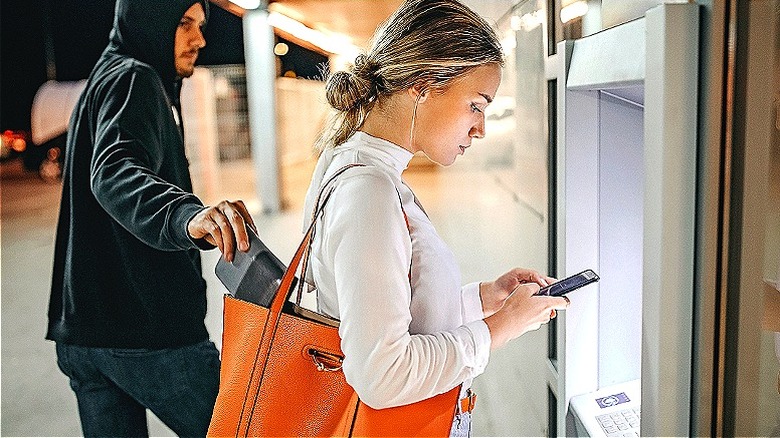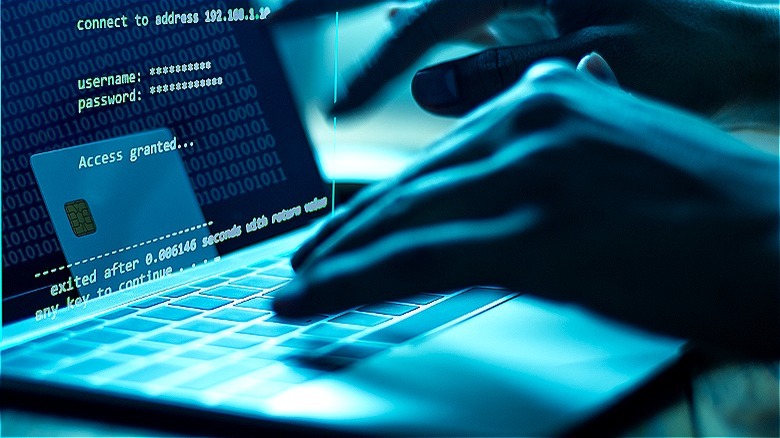The First Thing You Should Do If Someone Steals Your Credit Card
While credit cards can often offer cash back, perks, and points, perhaps the greatest benefit of all is the increased security most cards provide their users. Legally, credit card companies can only hold a customer liable for unauthorized charges up to $50 (if reported within 60 days), but most credit card companies take this a step further, offering a zero-liability policy within their cardholder agreements that relieves cardholders from the financial responsibility of any unauthorized charges (that is, in the event your credit card is stolen). This offers an added level of consumer protection over most debit cards and can make shopping with your credit card a safer experience.
While no one wants to have to use these protections, credit card theft has become increasingly more common. According to home security and personal safety resource Security.org's 2023 Credit Card Fraud Report, 65% of (1,000) surveyed cardholders reported experiencing card fraud at some point in their lives. Even worse, this number is an increase from the prior year, when only 58% had reported fraud experiences. Even though you have increased protections from your credit card company, it's still ultimately your responsibility to discover and handle any potentially fraudulent charges on your account.
It's important to know what to do and who to talk to if credit card fraud happens to you. With this in mind, there are also different things to know depending on how exactly your credit card information was compromised. Physical card theft versus virtual/digital theft can require different strategies for dealing with very different potential fallouts.
If someone steals your physical credit card
This might sound weird, but it's actually easier to deal with your physical credit card being stolen than it is to deal with virtual theft. Provided nothing irreplaceable was stolen during the theft, credit card theft is generally more inconvenient than it's damaging. Your first step should be to freeze or cancel the stolen cards.
Depending on your specific credit card company and customer interface options, you might even be able to do this instantly from a mobile app or online account. Freezing the credit cards and/or accounts right away can ensure the person who stole your card isn't able to actually use it to make any purchases. This can also give you more time to call your bank or credit card issuer to explain the situation more completely.
Generally, the card issuer will have to be the one to formally cancel your card. Plus, calling your credit card company as soon as possible can also help to ensure you get a replacement card that much sooner. Some companies offer expedited shipping for new cards, so make sure to ask about your options (and subsequent costs for those options). Waiting on a replacement can be annoying, but is still better than being on the hook for purchases you didn't make. Another key step to take once you get your new card is to make sure you change your card information for any subscriptions, bills, and payments you have set up for auto-pay.
If someone steals your information
Unfortunately, having your information stolen virtually is a far more dangerous form of theft. Not only can this lead to larger identity theft consequences, but it's also harder to pinpoint where exactly your information might have been stolen from. First, you should contact your credit card company immediately if you discover any suspicious charges on your account. Not only can your credit card company ensure no additional charges come through, but it can also begin working on itemizing and refunding the amounts already spent. You should also consider contacting the major credit bureaus (Equifax, Transunion, Experian) as well as law enforcement.
It's important to make sure you look through your cardholder agreement so you know exactly how long your specific credit card company allows you to bring up and challenge potentially fraudulent charges. With that in mind, making sure to regularly check your account and statements can also be the key to ensuring you're not left on the hook for purchases you didn't make.
If you still have your card and are dealing with virtual theft, making sure to review your credit score and report can help assess if your identity has been stolen. If new lines of credit have been issued and/or hard credit checks have hit your credit report, you might have a larger problem on your hand than a few incorrect charges. In this instance, freezing your credit and/or issuing a fraud alert on your credit report might be required.


